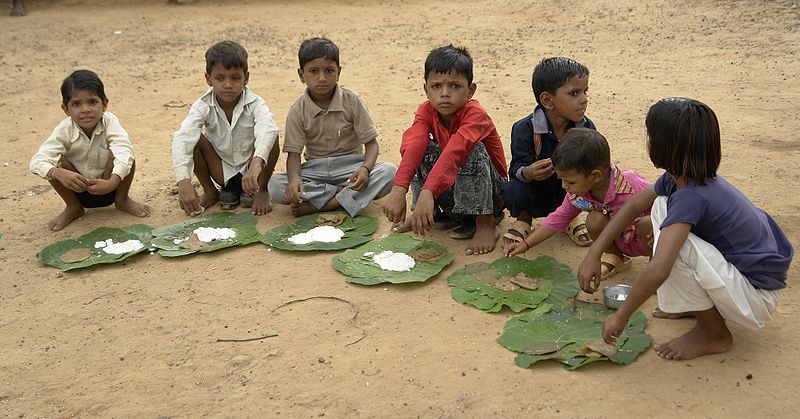A scheme which sees food delivered by hand to homes in the tribal villages of Jharkhand was initiated by the state government this week. It aims to provide rations to at least 70,000 vulnerable families in the state.
This week, the Jharkhand government launched a food post scheme, the first of its kind in India, with the aim of reaching 70,000 families of the Particularly Vulnerable Tribal Groups (PVTGs). The scheme, which uses special messengers to hand deliver food to families and homes, hopes to tackle malnutrition and high hunger death rates in the area.

Out of a total of 32 tribal groups in Jharkhand, at least eight groups: Asur, Birhor, Paharia (Baiga), Sabar, Birajiya, Korwa, Mal Pahariya and Souriya Paharia have been categorised as PVTGs due to their specially low development indices when compared to other local tribes. They have been classified by the government as being hard to reach on account of their wandering nature.
Under the new scheme, families enrolled under the National Food Security Act (NFSA) are entitled to a free 35 kg packet of rice for each household. The scheme started this week in the blocks Sundar Pahari (Godda), Chainpur (Palamu) and Barhait (Sahebganj). The secretary of food and public distribution department Vinay Kumar claims that all 24 districts of the state will be covered under the scheme by the end of April.
You may also like: TBI Blogs: Over 80 Govt Schools in Andhra Pradesh Are Using Sticks & Stones to Help Their Tribal Students
The National Food Security Act, 2013, responsible for providing subsidized food grains to approximately two thirds of India’s 1.2 billion people, was failing many PVTGs. Under the provisions of the bill, beneficiaries of the Public Distribution System, India’s poor are entitled to 5kg per person per month of cereals, however, many PVTGs were failing to avail the benefits, which was blamed on the groups being hard to reach due to their jungle dwellings. Their dwindling population is said to have been a concern to both the state and Central government.
The scheme also hopes to boost women’s empowerment in the villages as the government has decided to purchase 35-kg plastic bags from Sakhi Mandal (women self-help groups), helping to boost income for the rural women.
Like this story? Or have something to share? Write to us: contact@thebetterindia.com, or connect with us on Facebook and Twitter.
NEW: Click here to get positive news on WhatsApp!
If you found our stories insightful, informative, or even just enjoyable, we invite you to consider making a voluntary payment to support the work we do at The Better India. Your contribution helps us continue producing quality content that educates, inspires, and drives positive change.
Choose one of the payment options below for your contribution-
By paying for the stories you value, you directly contribute to sustaining our efforts focused on making a difference in the world. Together, let's ensure that impactful stories continue to be told and shared, enriching lives and communities alike.
Thank you for your support. Here are some frequently asked questions you might find helpful to know why you are contributing?

